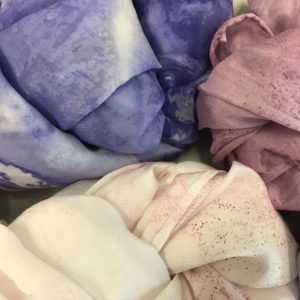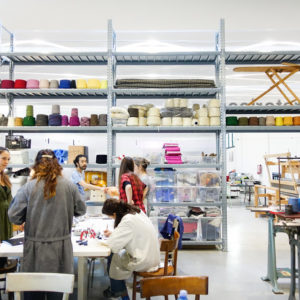Textile industry in the Beskids region and in the Europe
Main question
What is the future of textile industry in the Beskids region?
Subquestions
How do European textile centers affect the current textile industry?
How do textile centers and laboratories work in the world?
What can mutual communication with European centers bring to the Beskids ecosystem?
What can we learn and what know-how and innovations are currently being developed in textile laboratories around the world?
Overview of the project
The aim of the workshop was to create a topic for the future of the textile industry in the world. To open the textile ecosystem of the Beskids region with an innovative idea and gain an overview of the current situation. Creative and innovative textile centers were added to the discussion, and therefore we were able to start a discussion about the form of their existence. Each center has a dominant role and intention that they develop. We also talked about what is important for the construction of a new textile center.
Speakers
Lottozero: As they are located in a region with 5,000 textile factories around them, they work as a counseling center. They are dedicated to the infrastructure of textile production, as a service, they offer the possibility of connection with factories. Furthermore, in 400 m2 they have residential premises, kunsthalle, but they also offer machine rental. Lottozero’s mission is to create a fertile environment for textile research and experimentation in design and art, and an international base for networking in the textile sector.
The textile lab: Works as a workshop / craft space for rent. They have great machines in the machine park, which can be rented and worked on by a textile designer or anyone under the constant supervision of experts and technologists.
Textile Lab Vienna: It is a textile center that develops a special type of bacterial dyeing. it is a sustainable way that affects a new form of textile future.


